By Kylie Meyermann

The Fairmont Royal York was the first hotel in the world to install rooftop beehives. Executive Chef David Garcelon discusses with Kylie Meyermann the importance of using locally grown ingredients.
I hope Mother Nature isn’t playing another one of her games but it would appear that Toronto has finally been rescued from the winter blues and has been blessed with the arrival of spring weather. It has been a daunting three weeks. Back in March, when Toronto was miraculously bestowed with a 21°C day, I may have gotten carried away and purchased half a dozen pre-planted herbs for my rooftop garden. They have since been slowly withering on my kitchen counter.
But, there are signs of spring-time change. Starbucks locations are once again giving away their used coffee grinds to enthusiastic gardeners in dire need of some nutrient rich compost. Also, Toronto’s Green Bin Initiative recently dumped their annual truck load of compost in Toronto’s centralized parks: free dirt for spring gardening.
Toronto has caught the green bug and is itching to play in the dirt. Even my urban friends who live in Condo Central on Lakeshore are approaching gardening with gusto. I decided that it was time I found some spring inspiration and recently interviewed Chef David Garcelon at his restaurant, Epic at the Fairmont Royal York – one of the first hotels in Toronto to go green. Chef Garcelon happily shared with me his passion for cooking with local ingredients and how the Fairmont’s rooftop garden has changed since his arrival five years ago.

Chef David Garcelon is the executive chef at Epic Restaurant. Epic uses fresh ingredients and honey that is produced on the Fairmont Royal York roof.
GFR: What does the idea of good food mean to you?
David Garcelon: Good food to me is all about the ingredients. They have to be fresh, which usually means local, and the closer to the source you are the better. With fresh ingredients you don’t have to do anything too complicated with them, just keep it simple and keep the integrity of the ingredients so that it can be easily passed on to the guests. Generally, simple is the best approach to present the ingredient at its best.
GFR: How do you apply your philosophy of good food at Epic Restaurant?
DG: I oversee all of the food and beverage operations at all of the Fairmont restaurants. Our philosophy is to promote Canada and to use ingredients grown in Ontario. We try to incorporate good food into our everyday philosophy with everything we do, from our roof top garden, to our beehives, to using fish from the great lakes.
The Fairmont hotels are all very unique and a lot of them – like the Royal York – are in old heritage buildings. One may guess, that our guests wish to have a unique dining experience with authentically local food. We try to provide that and give our guests a sense of place with every dish. We try to promote local food but also the spirit of Ontario.

Fairmont Royal York was the first hotel in Toronto to install a green roof. Chef Garcelon tells GFR that his staff grows forty different varieties of herbs, vegetables, fruits and edible flowers.
GFR: Can you tell me more about the rooftop bee hive?
DG: This will be our third season having bees on the rooftop. As far as we know, we are the first city hotel in the world to have a beehive. We have six hives and last year we harvested a little over 450 pounds of honey.
GFR: Is making honey similar to making maple syrup? During the process of turning tree sap into syrup, most of the syrup has to be condensed or is evaporated during the intensive heating process. How much of a finished product can you make with 450 pounds of honey?
DG: The finished product is what we take out of the hives at the end of the season. It makes roughly 700-800 jars of honey. We don’t actually jar or sell most of our honey. We give some of it away to special guests and the rest of it we cook with.
Honey is a very versatile ingredient. We use honey in salad dressings and pair it with our teas. We also use it in our savory dishes, pastries and ice cream. We recently partnered with Mill Street Brewery and made a honey beer that is available on tap in some of our restaurants.
The bee hive is a great way to support the environment. One of the most exciting aspects is that many of the other Fairmont Hotels in the world have followed in our footsteps and have installed their own rooftop beehives. San Fransisco, Washington and Vancouver hotels now have their own beehives.

The Toronto Beekeeper Co-Operative has partnered with the Fairmont Royal York and volunteers with the rooftop hive.
GFR: After installing the beehive did you receive training for handling the bees? Do you have a beekeeper?
DG: We are really lucky at the Fairmont Royal York. We have a partnership with the Toronto Beekeepers Co-Operative, which is a volunteer organization that wants to keep bees in the city. We contacted them about three years ago and there was a perfect fit for us and them. They have a professional beekeeper on staff, but there are also volunteers with a lot of experience. So, they look after the hives and whenever we open the hives they are present. We work with them and we built the hives from scratch to better fit the necessary needs that come with Toronto weather.
We both liked the idea of having bees kept on the Fairmont roof because it is such a central location. Since putting the bees on the roof we have generated a lot of publicity, which has immensely helped the Beekeepers Co-Operative. There is now a waiting list at the co-operative for people interested in lending their property and wishing to have a beehive.

Fairmont Royal York Hotel executive chef David Garcelon takes instruction from beekeepers on the handling of the three new hives on the hotel's roof, just beside the roof-top herb garden.
GFR: Besides the honey that you produce on the hotel roof, what other ingredients do you harvest in your rooftop garden?
DG: We grow forty different types of herbs, vegetables, fruits and edible flowers. We try to plant things that are interesting and something different from the usual. We plant tomatoes, but we don’t just plant red tomatoes; we plant black and fig tomatoes. We take guests up on the roof and let them walk around and explore the gardens. It’s nice being able to teach people about local food as well as possibly showing them something that they may have never seen before.
All of the chefs have access to the roof. They can take whatever they need. The garden is definitely a learning ground for people.
GFR: Is the Fairmont Royal York affiliated with any other co-operatives in the city? Are there any certifications that you are proud of?
DG: We were one of the first restaurants in Toronto to become Ocean Wise certified. It’s a really good partnership that we are happy to continue. We like Ocean Wise a lot because it puts the power in the hands of the customer. All Epic has to do is identify which are the best sustainable choices on the menu and hopefully the customers will gravitate towards those options. If the customer is demanding the product, then in turn we purchase more of that product which encourages fishermen to fish sustainably because there is a demand. I think that Ocean Wise is a great program that we have been affiliated with for almost three years now.

Fairmont Royal York Hotel executive chef David Garcelon uses honey in his salad dressings, savoury dishes, pastries and ice cream.
GFR: What is one of your proudest achievements at Epic Restaurant and the Fairmont Royal York?
DG: In terms of my job, I’m always really proud of the chefs and apprentices that I work with. People are the other key ingredient to good food and I have been fortunate enough to work with some amazing and talented chefs. We have a regular apprentice program here where we help develop skills in young chefs. The people are what I’m most proud of.
In terms of local food and sustainability, I’m most proud of the rooftop garden and the beehives. It’s been a great experience and it’s very exciting that we have influenced other hotels to follow suit. The hives have brought attention to what is happening to bees in urban environments and other buildings in Toronto now have beehives as well. We were the first, but now the University of Toronto and the Four Seasons Opera Centre have beehives on their roofs. Both of those establishments contacted us and asked for our assistance and advice on designing and maintaining the hives. It’s something I am very proud of.
GFR: What can your guests look forward to expecting from Epic and the Fairmont Royal York in the near future?
DG: We are always trying to source new ingredients and find interesting local products to use. A product that I really like is Blue Mountain Speckled Trout. It is a farmed fish that is sourced from Collingwood. Most farmed trout is Rainbow Trout, so Speckled Trout is different and has a beautiful dotted skin. It is slightly more expensive because it takes longer to grow to it’s full size. The trout is Ocean Wise certified and it has been on our menu for the past two weeks. It’s a great sustainable choice.
* * *
I left the interview with Chef Garcelon enthusiastic for spring gardening and up a jar of honey. Once at home and in my kitchen, I cut a thick slice of sourdough bread and lathered it with a thick serving of Fairmont Royal York honey. The honey is grainy and golden. Unlike generic honey brands, the Fairmont’s honey is thick and spongy, the perfect accompaniment with brie on wafer crackers.
All of the photos in this article were provided by the Fairmont Royal York and photographed by Norm Betts.
 Kylie Meyermann is a writer for Good Food Revolution. She also works at Jamie Kennedy Kitchens and is passionately obsessed with wine.
Kylie Meyermann is a writer for Good Food Revolution. She also works at Jamie Kennedy Kitchens and is passionately obsessed with wine.

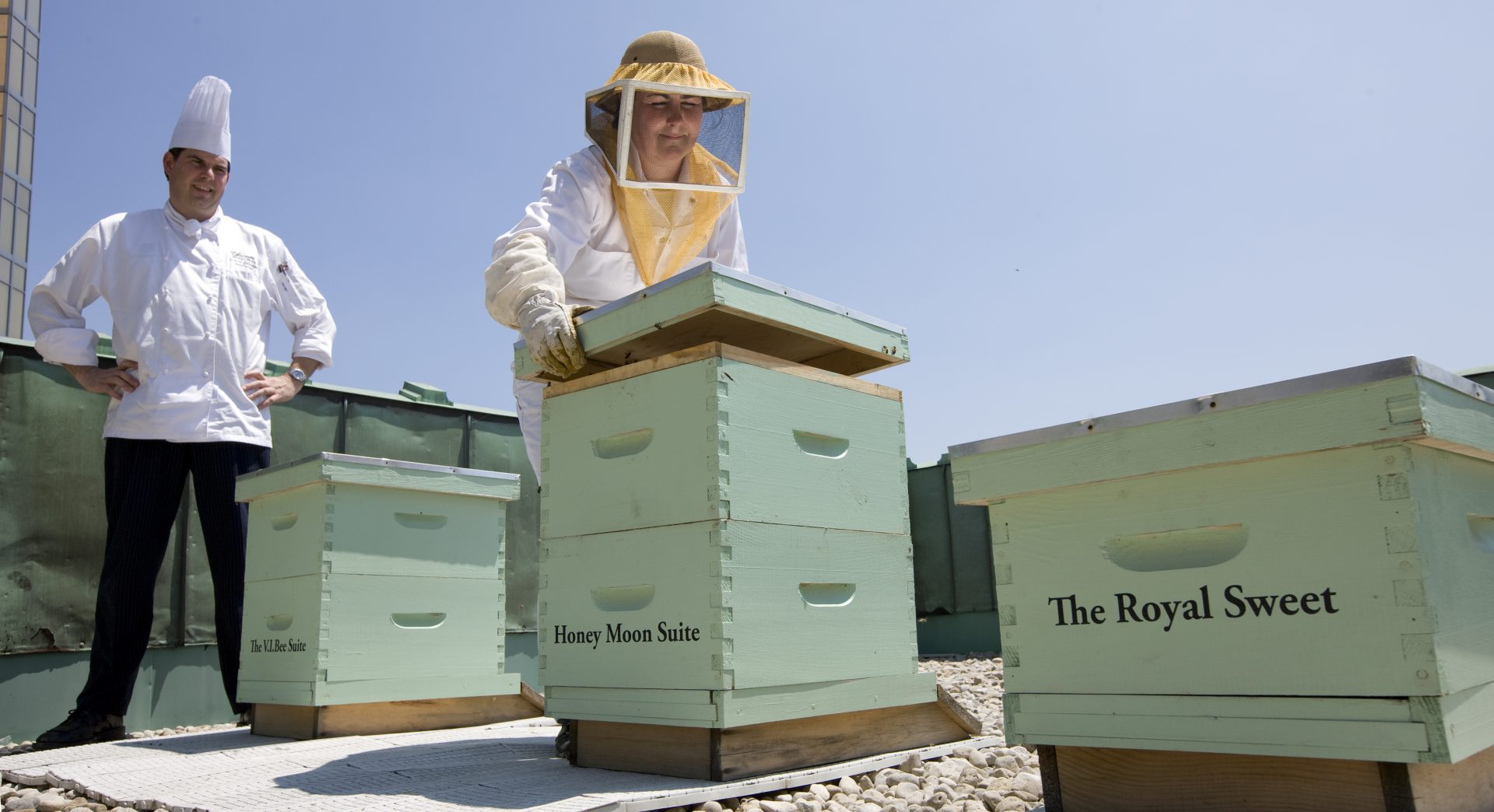

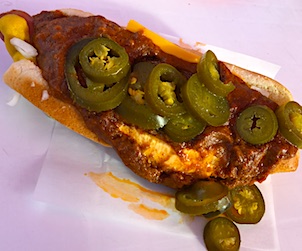
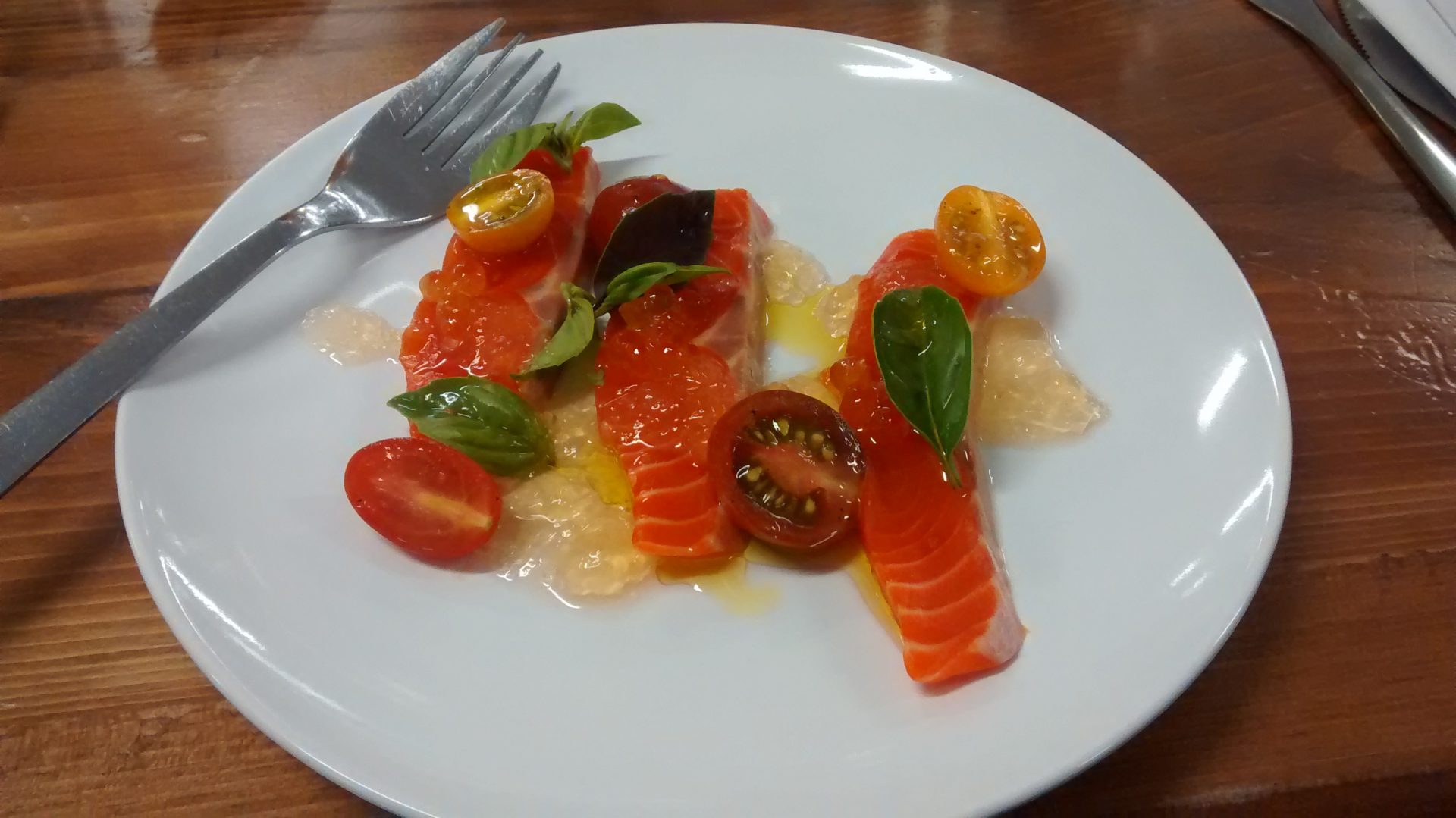
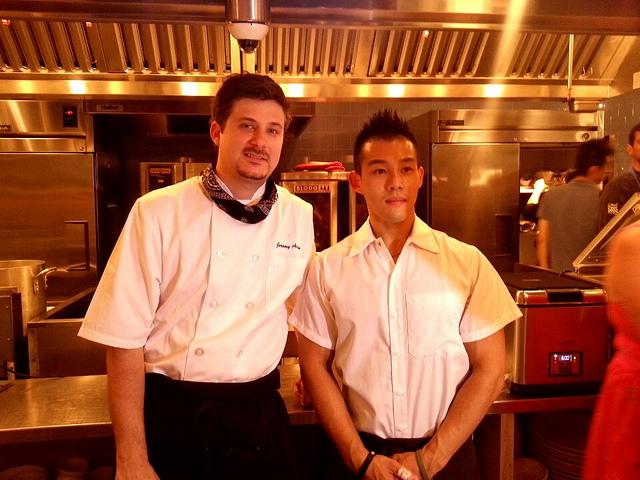
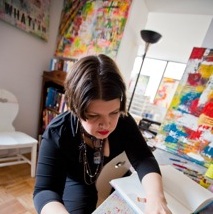

Reblogged this on The Canadian Pages.
Reblogged this on Romancing the Bee and commented:
Hoteliers keep bees!